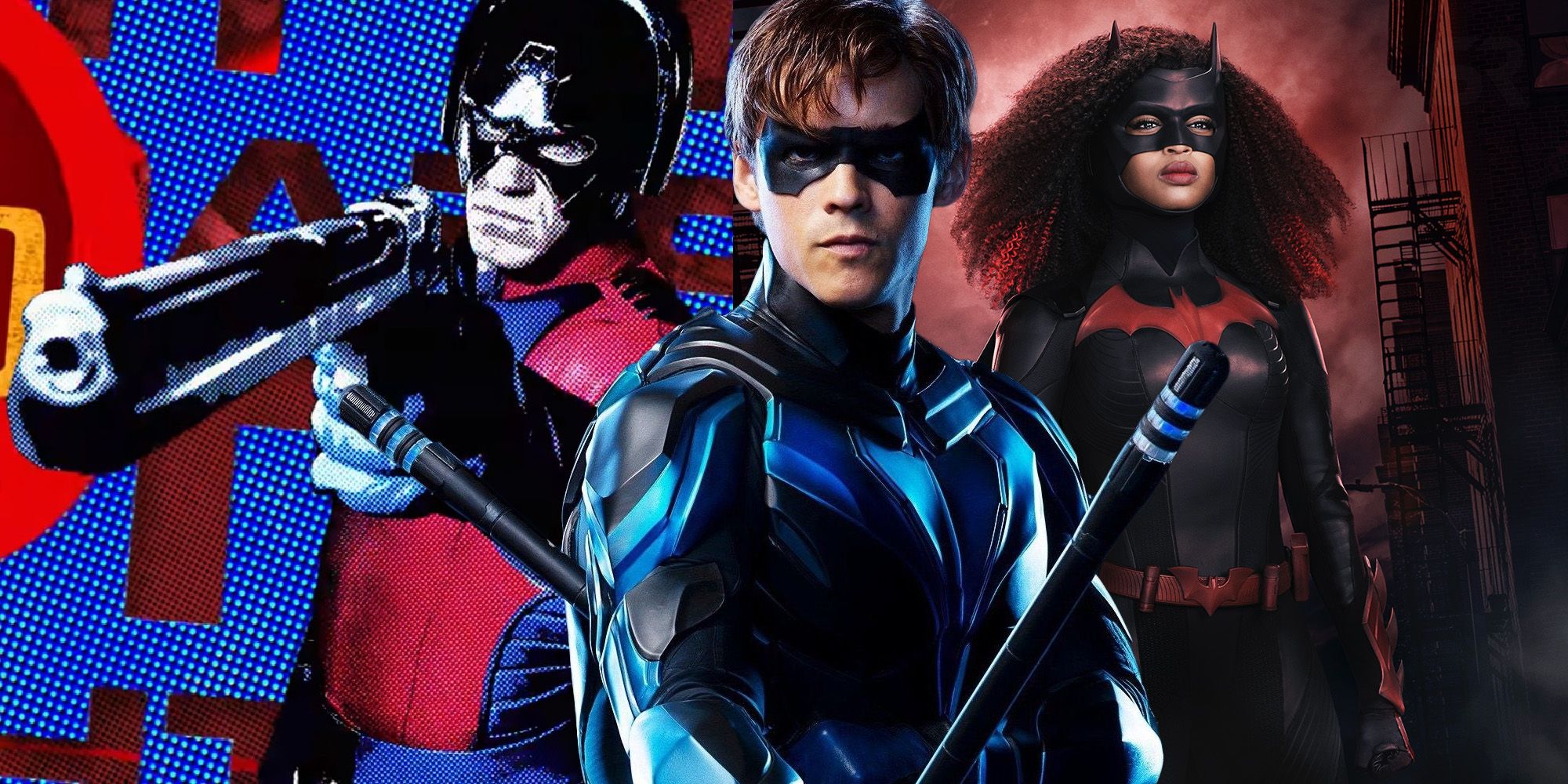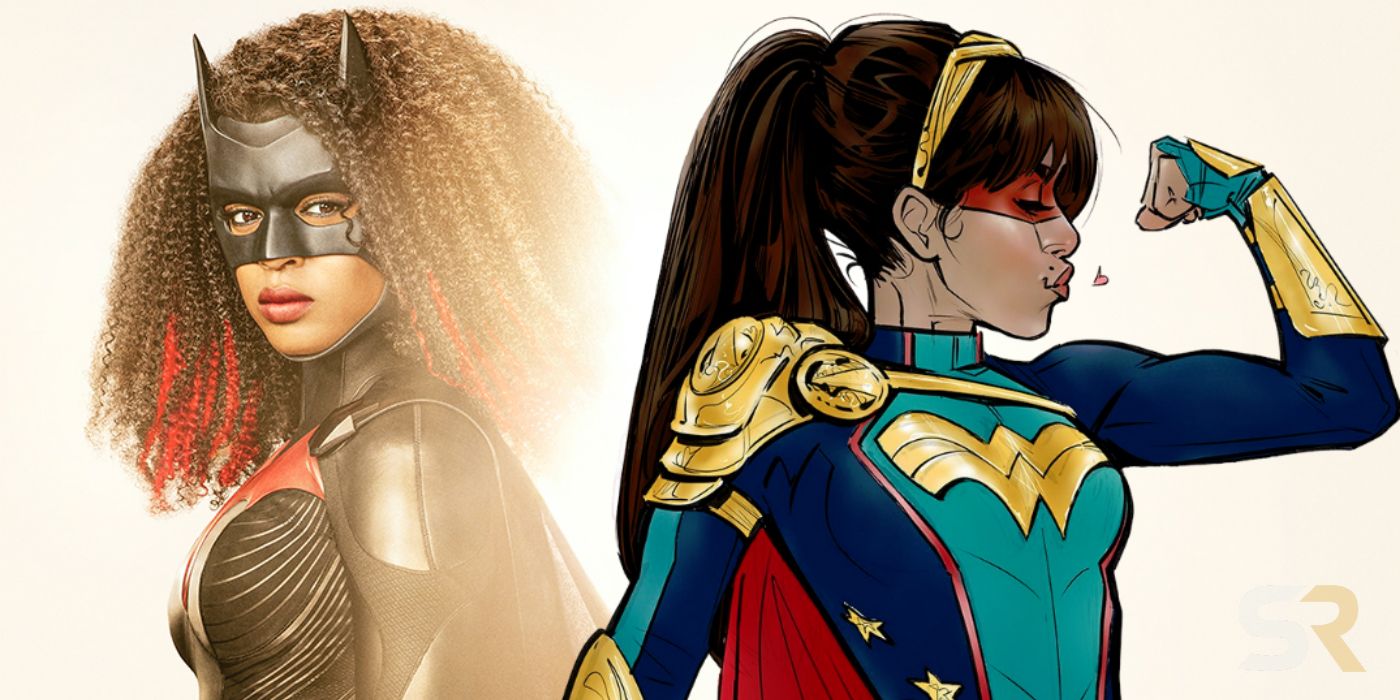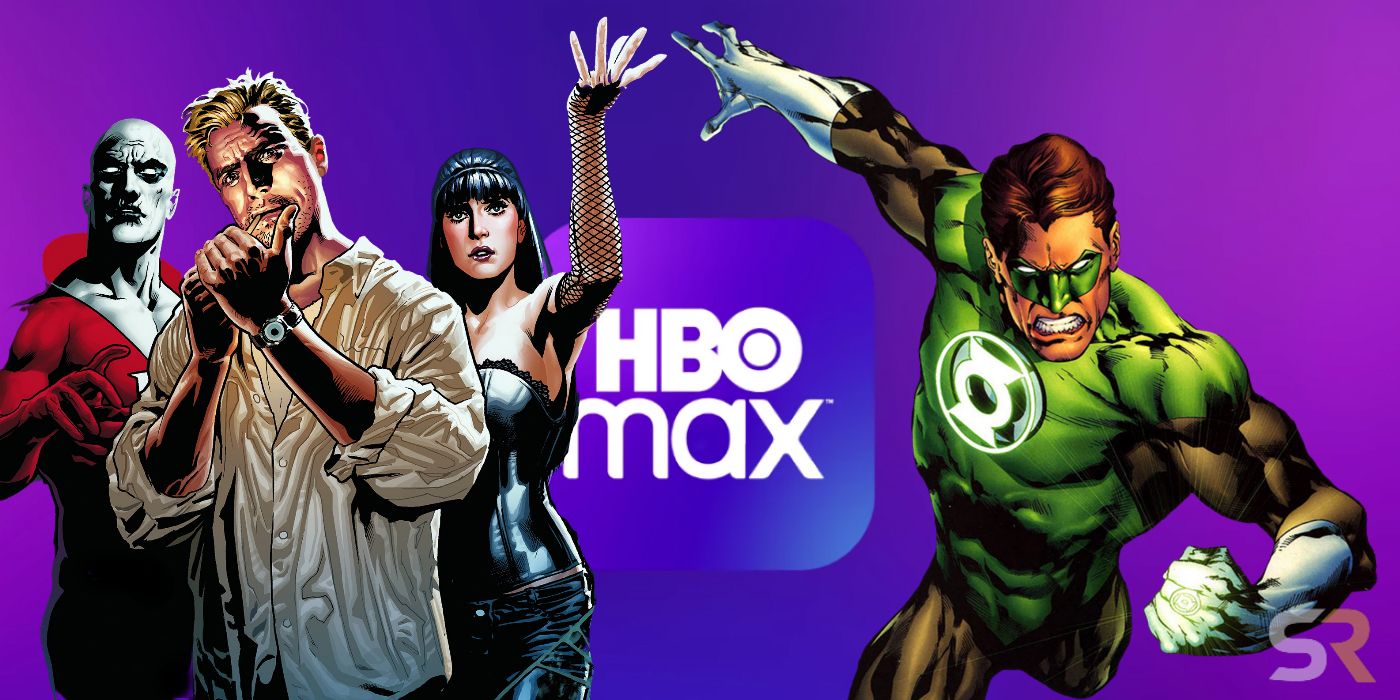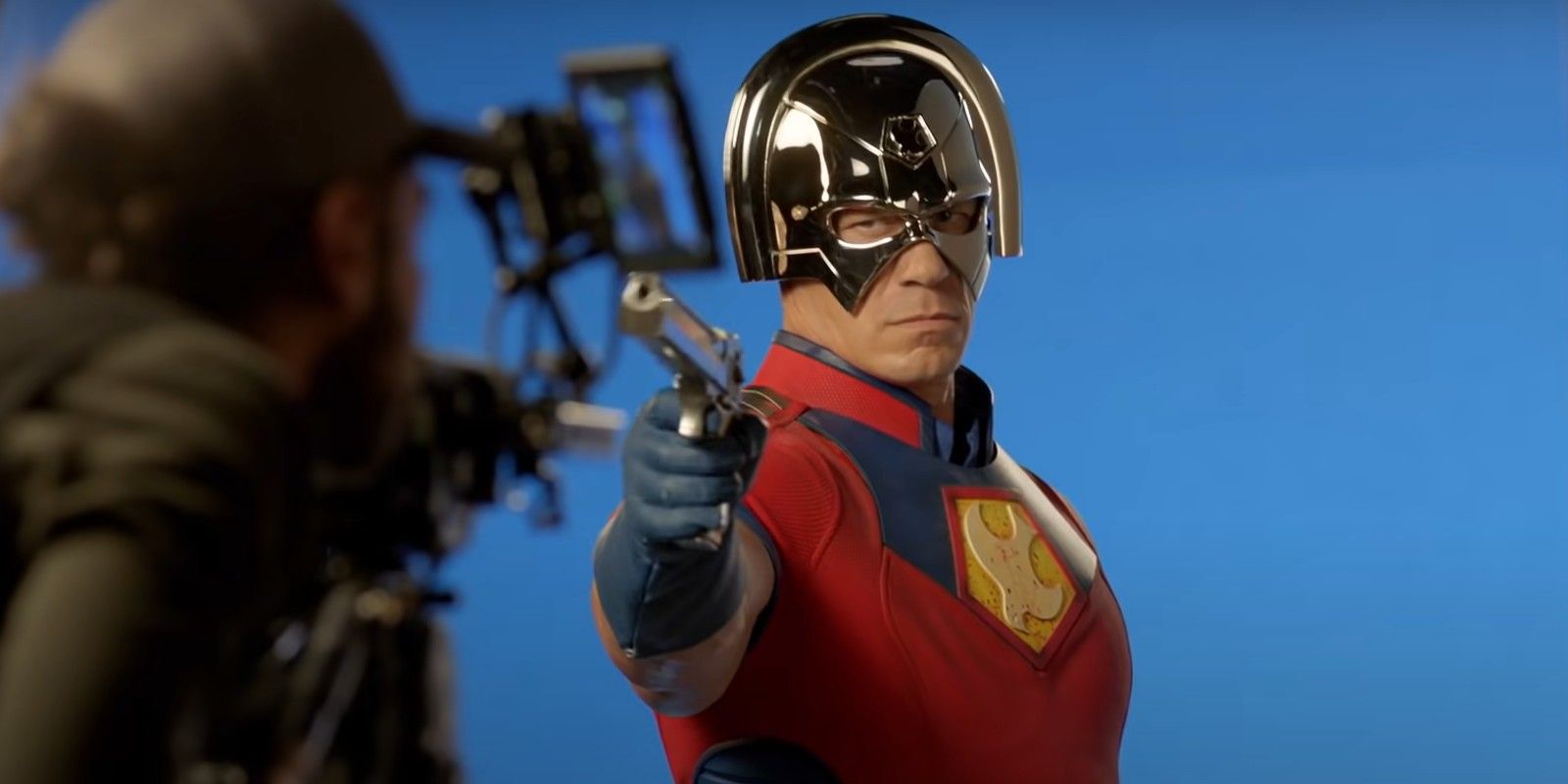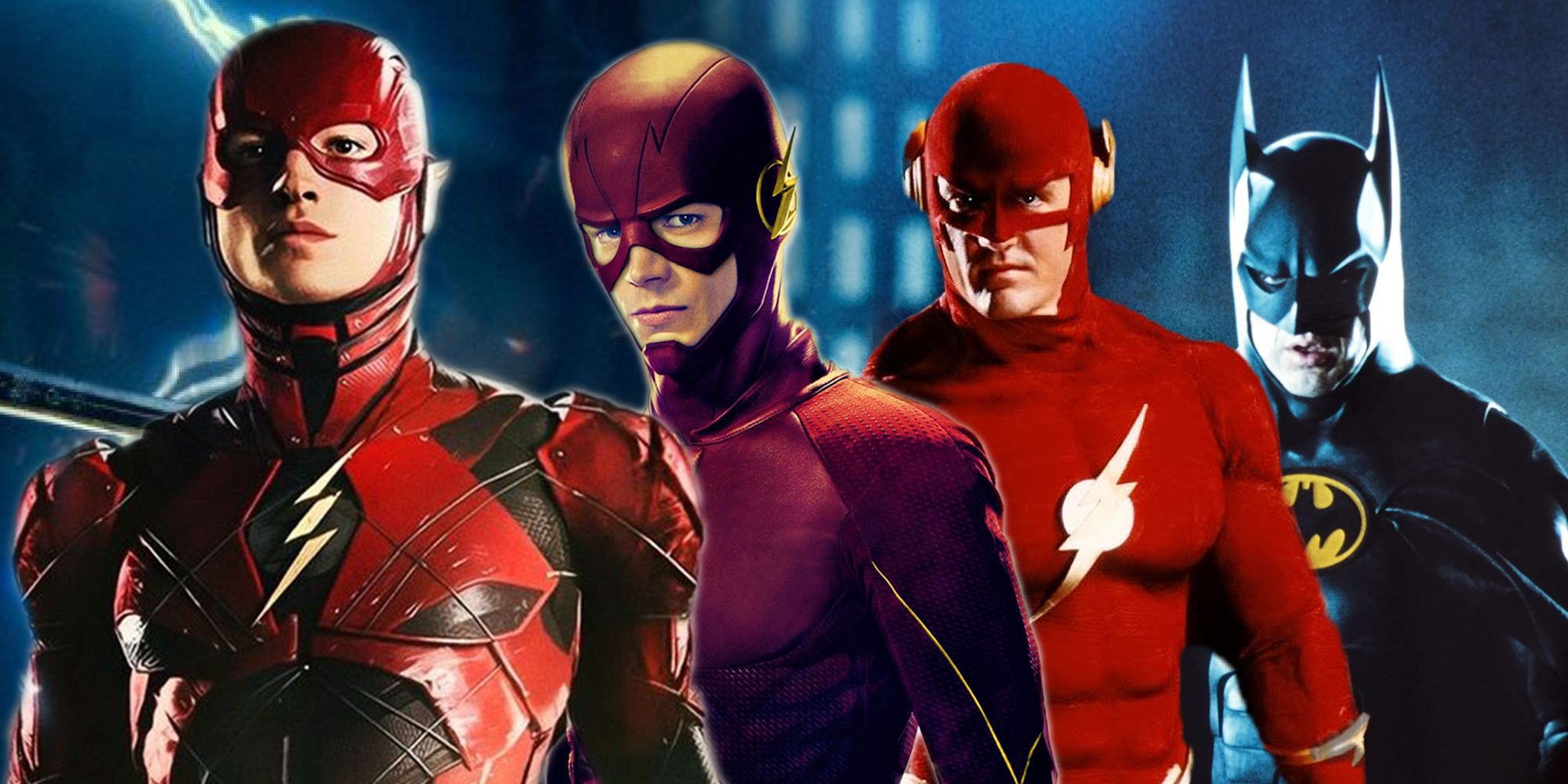The Arrowverse and the DC TV landscape are changing their format in the coming years, starting as early as in 2021. While Smallville helped pave the way for more DC properties to come to the small screen, things went into over-gear in 2012 when Arrow premiered on The CW. Following its first successful season, it didn’t take long before Arrow launched several spinoffs, starting with The Flash. But as Greg Berlanti’s shared TV universe kept growing, so did Warner Bros.’ interest in investing in DC characters on television. With more than 5 Arrowverse shows on The CW, Warner Bros. started also producing more DC TV content on other platforms.
With gritty shows like Titans, obscure-but-refreshing series like Doom Patrol, and impactful limited dramas like Watchmen, DC has become a powerhouse for bringing comic book characters to TV. Despite Marvel having had success with several shows, DC TV (via the Arrowverse primarily) has still been ruling the game for almost a full decade. However, as the brand is getting closer to celebrating its decade-long run, Warner Bros. is entering a new phase for how to make DC TV shows across their platforms. Following the Arrowverse’s 5-part event Crisis on Infinite Earths, one chapter is ending as another one begins.
2020 has been a challenging year due to the global coronavirus pandemic, which has impacted how TV and film are currently being made. As networks and studios are still proceeding with producing new content while following the safety guidelines, Warner Bros. has been making some intriguing moves that foreshadow the new changes for the DC TV franchise. A lot has already been announced and is in the works while other projects are still in development phases. But nonetheless, DC TV is going to change drastically within the next year or so. Not only is the Arrowverse changing its line-up, but so is Warner Bros.’ approach to creating more DC TV shows.
Original Characters Will Headline DC Shows
The Arrowverse has had a very interesting year following Crisis on Infinite Earths. Despite being intended to be almost of a new beginning for the franchise, The CW has had a few shake-ups this year. Supergirl and Black Lightning are coming to an end in 2021, and Batwoman is making history for the Arrowverse. For the first time since it began, the Arrowverse has a show that had its lead leave after only one season. Not only is the Kate Kane character seemingly done in this universe, she’s being replaced by an original character that originally wasn’t in DC Comics: Ryan Wilder.
Though Javicia Leslie’s character has actually debuted in DC lore recently, Ryan is still the first character to ever headline a DC show without having any comic history previously. Little is known about Ryan in the Arrowverse or the comic book version of her that debuted in Batgirl #50. Within the last 8 years, DC TV has never been led by an original character carrying the name of an established DC Comics superhero. The creation of Ryan for The CW is a first for not just the Arrowverse, but DC TV as a whole. But that isn’t the only change to DC TV’s long-time status quo that is coming. The CW is currently developing a Wonder Girl series that's not based on Donna Troy or Cassie Sandsmark.
Instead, the drama will focus on Yara Flor, a character who will be Wonder Woman in DC Future State, and hasn’t even fully arrived yet in the books. Should Wonder Girl go to series, it would feature a character who has only been in the comics for a very short time. What her role will be in the DC Universe post-Future State remains to be seen. There is also the Black Lightning spinoff Painkiller that would star Jordan Calloway’s Khalil Payne (another original character for DC TV) in the works. With all of these moves, DC TV is beginning to show its investment in characters that are brand new and not necessarily already in the comic books.
HBO Max Is DC’s Definitive Streaming Outlet
While The CW has become the primary broadcast network for DC TV, Warner Bros. has now finally found its cable/streaming home: HBO Max. Warner initially eyed DC Universe as the destination for original DC shows that couldn’t happen on regular broadcast TV. From shows like Titans, Doom Patrol, and Swamp Thing, the DC streaming service had potential, but its restrictions were obviously something the company wanted to be free of. That’s where the creation of HBO Max comes into play; WarnerMedia finally has a platform for all of their IPs, and the opportunity to produce more content.
It was speculated for quite some time that HBO Max would ultimately end up replacing DC Universe when it came to digital DC TV shows. In the end, it would simply not make practical and financial sense for Warner Bros. to have two streaming services and, essentially, having to figure out how to divide original DC content for DC Universe and HBO Max. The HBO-branded service had as early as last year revealed that they’re developing their slate of DC shows like Green Lantern. Then, earlier this year, it was officially revealed that DC Universe originals Titans and Doom Patrol would now be exclusive to HBO Max.
DC Universe officially lost its status as a destination for original DC shows as HBO Max has now become the streaming outlet for DC shows. While it definitely raised questions for what would happen to the Arrowverse as HBO Max is producing several DC shows, it has also proven to benefit DC TV. The CW will be one source for broadcast-appropriate DC shows while HBO Max goes for the new territory that can also be given required resources and time in ways that CW can’t. It is because of this platform that something like Zack Snyder’s Justice League is even able to finally be released in its true version as a 4-hour series/film. But HBO Max isn’t just becoming a new destination for DC TV; it’s a crucial part in the format’s coming changes.
DC Films Are Launching TV Spinoffs
Crisis on Infinite Earths became the first time where Warner Bros.’ DC TV and DC Films crossed paths in a massive way. Not only did Brandon Routh’s Superman from Superman Returns take part in the adventure, but so did Ezra Miller’s DCEU Flash. As Miller’s version of the Scarlet Speedster met Grant Gustin’s iteration, it was the beginning of a new chapter for Warner Bros. and how they utilize DC Films outside the big screen. Warner Bros. is using HBO Max as a platform to explore multiple cinematic universes (or Earths) and various franchises.
Matt Reeves is rebooting Batman for cinema with Robert Pattinson set to star in The Batman as the latest iteration of the Caped Crusader. But that universe is already spreading its yet-to-be-born-wings with Reeves currently developing a spinoff series that would follow the Gotham P.D. during Batman’s first year. This is the first time any DC film franchise has even done a spinoff, let alone on the small screen. But the fun doesn’t stop there as The Suicide Squad is giving one of its leading characters a spinoff too on HBO Max with John Cena’s Peacemaker. The spinoff will also feature a number of players from James Gunn’s upcoming DC movie.
It’s understandable why it has taken this long for Warner Bros. to consider widening out their DC films outside the movie theaters. Prior to HBO Max and even DC Universe, they didn’t have their own exclusive (and perhaps more importantly suitable) platform to create spinoffs from the cinematic universe. But that moment in Crisis on Infinite Earths when Gustin and Miller’s Flashes came together, it officially helped pave the way for that to be an easier reality. All of that came through one simple, but the brilliant concept that has been a driving element in DC Comics for decades: the Multiverse.
What’s Driving These Moves: WB’s Multiverse Investment
With all of these changes and experimentations that Warner Bros. is ramping up for the Arrowverse, the reason for it is their clear investment in the DC Multiverse. During the Smallville days, it would have been impossible for Batwoman, Titans, Wonder Girl, and more to be considered as TV shows due to Warner Bros. being restrictive with utilizing the bigger Justice League characters outside the big-screen. The fact that Superman & Lois is becoming a reality in February 2021 is a miracle given how many Superman restrictions Smallville had. But thanks to Crisis on Infinite Earths solidifying all of Warner’s past, present, and future DC live-action properties existing in the same Multiverse,
As there have been a lot of changes in the leadership and staff at Warner Bros. and DC in the last few years, particularly in 2020, that is obviously pushing DC TV’s evolution. Now that they have played the game for almost a decade with this version of DC TV, it’s only logical that they try to approach new tactics. That’s why new characters like Ryan Wilder and Yara Flor can headline shows like Batwoman and Wonder Girl (if it goes to series) that are traditionally carried by long-time established DC characters. But with the Multiverse, it just gives Warner Bros. an infinite amount of opportunities to explore DC heroes and villains.
Not only can they explore iconic characters that have existed in the comics for years, but also help pave the way for new ones to join the legacy. Theoretically, they could have Pattinson and Ben Affleck’s Batmen in the cinematic worlds and perhaps one day do a Batman Beyond show whilst letting another hero carry that iconic name. While it has been a process to get to this point, DC TV has come a long tremendous way with solid platforms, the space to make refreshing ideas through everything that 2020 has revealed thus far. While there are bound to be more things coming for Arrowverse and DC TV as a whole, there’s already so much to look forward to as the format evolves and changes.

